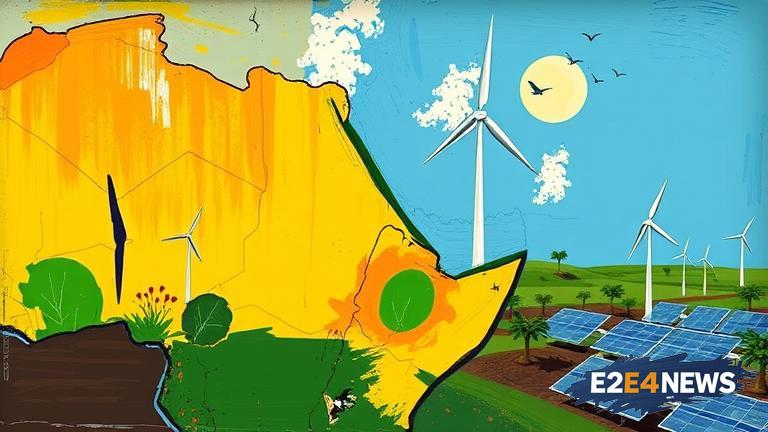The African continent is witnessing a significant shift towards renewable energy, driven by the need to address the pressing issues of energy access, climate change, and sustainable development. With many countries still struggling to provide electricity to their citizens, renewable energy has emerged as a viable solution to bridge the energy gap. Solar and wind power are leading the charge, with countries like South Africa, Egypt, and Morocco investing heavily in these sectors. The African Union’s ambitious goal of achieving 100% access to electricity by 2030 has further accelerated the adoption of renewable energy. Governments are implementing policies and regulations to support the growth of the renewable energy industry, including tax incentives, feed-in tariffs, and net metering laws. Private sector investment is also pouring in, with companies like Siemens, GE, and Vestas establishing a presence on the continent. The cost of renewable energy technologies has decreased dramatically over the years, making them more competitive with fossil fuels. Additionally, the integration of renewable energy into the grid is becoming more efficient, thanks to advancements in technology. Energy storage systems, smart grids, and microgrids are being deployed to address the intermittency of renewable energy sources. The benefits of renewable energy are numerous, including reduced greenhouse gas emissions, improved air quality, and enhanced energy security. Moreover, the renewable energy sector is creating new job opportunities and stimulating local economies. However, challenges persist, including the lack of infrastructure, limited access to financing, and the need for capacity building. To overcome these hurdles, international cooperation and knowledge sharing are essential. The European Union, the United States, and China are providing technical and financial assistance to support Africa’s renewable energy ambitions. The private sector is also playing a crucial role, with companies like Google, Microsoft, and Facebook investing in renewable energy projects on the continent. As the demand for energy continues to grow, Africa is poised to become a major player in the global renewable energy market. The continent’s vast natural resources, including solar, wind, hydro, and geothermal energy, make it an attractive destination for investors. Furthermore, the African Continental Free Trade Area (AfCFTA) is expected to boost trade and investment in the renewable energy sector. In conclusion, Africa’s renewable energy revolution is gaining momentum, driven by government policies, private sector investment, and international cooperation. As the continent continues to transition towards a low-carbon economy, the benefits of renewable energy will be felt across the region, from improved energy access to reduced climate change impacts.
